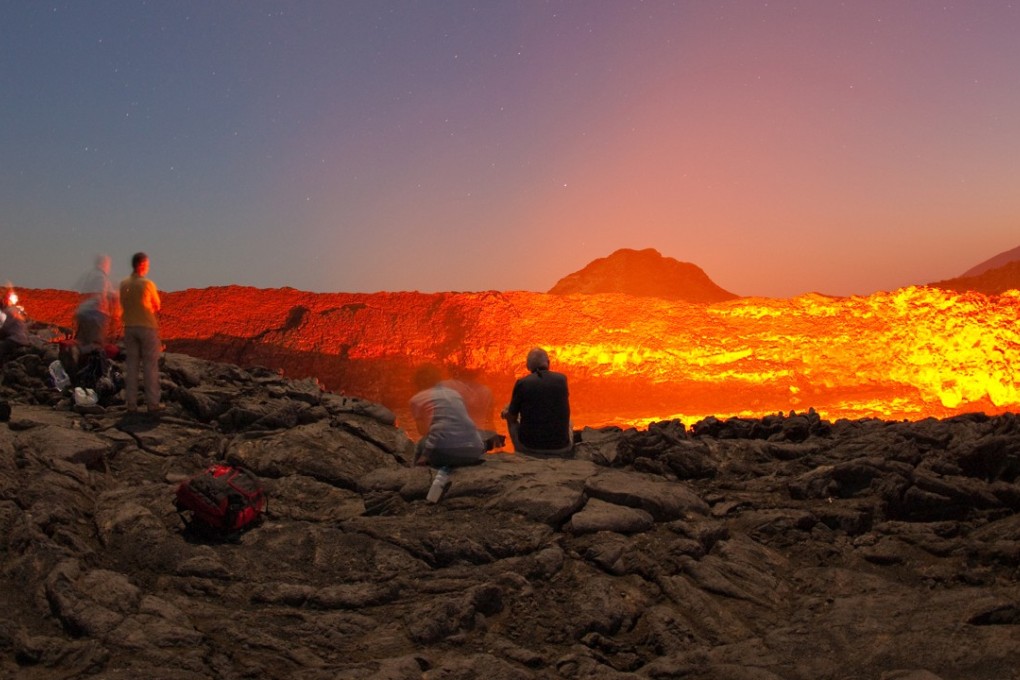Kilauea volcano’s eruption in Hawaii a reminder: plan a hike on an active volcano with care – by following these six tips
On a volcanic adventure there is always the risk of being trapped, injured or killed, so you should carry out careful planning and consideration beforehand. These are the most important details to keep in mind

I peered over the craggy rim of Erta Ale, Ethiopia’s most active volcano, at the lava lake below. Beneath a gassy haze, boiling, ruby-red, molten rock thickened and rose up, swelling like a tidal wave topped off by a fireworks of crashing surf.
I had stumbled upon the opportunity to hike to the 613-metre summit of Erta Ale while planning a road trip across the ancient kingdoms and lakes of Ethiopia’s Rift Valley. The East African Rift runs through Ethiopia’s crusty, northeastern Afar region.
Thousands flee as Hawaii’s Kilauea volcano erupts and lava spews out near homes
There, the shifting of the tectonic plates beneath the parched desert landscape produces a chaos of fire and gases that can be seen at the top of Erta Ale, which contains one of the world’s six lava lakes. The two-day trek turned out to be the most arduous and spectacular event in my month-long trip, and whetted my appetite for more.

Figures suggest that trips to both visit and hike volcanoes are increasing. Volcano Adventures, a tour company founded by German vulcanologist Tom Pfeiffer, says its day trip excursions to Italy’s Stromboli and Etna volcanoes have increased by 15.3 per cent since 2014.
The number of people climbing Mount Nyiragongo, an active stratovolcano in the Virunga National Park in Congo, increased 92 per cent between 2015 and 2017.
